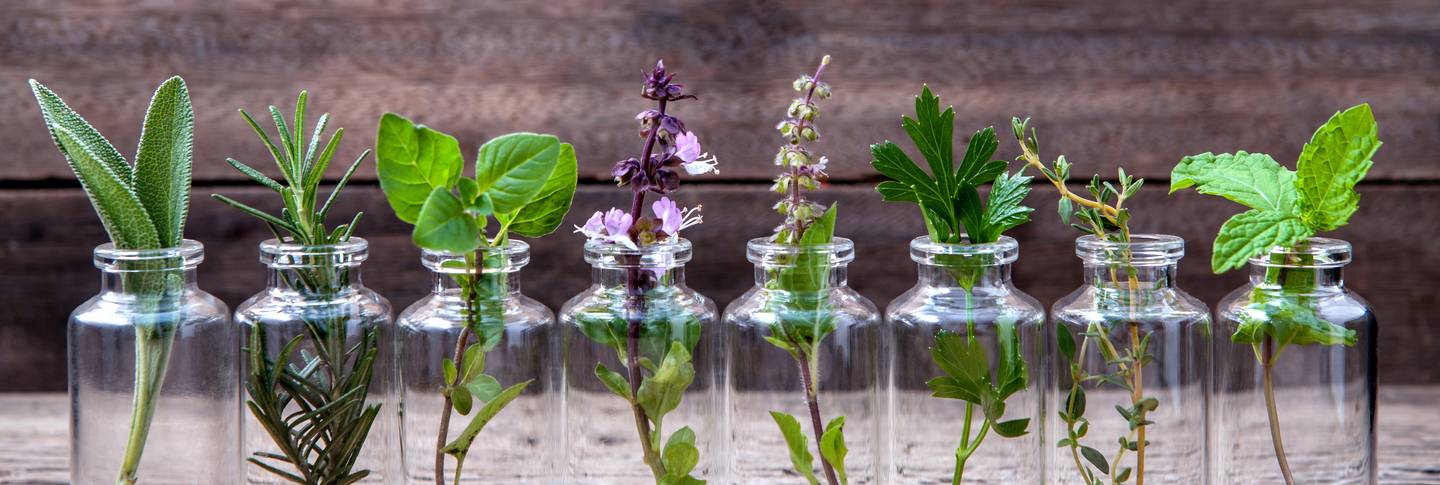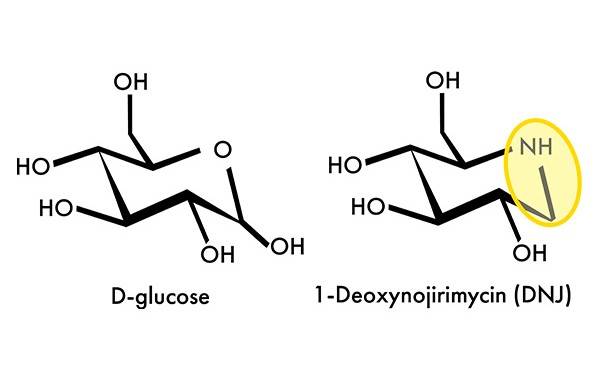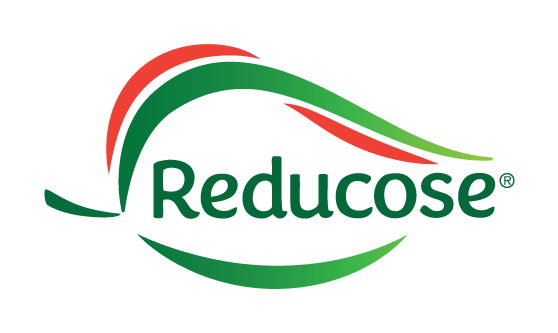
Reducose® : A PATENTED EXTRACT OF WHITE MULBERRY LEAF STANDARDISED IN 1- DEOXYNOJIRIMYCIN, WITH PROVEN EFFICACY
Reducose® is a patented aqueous extract of white mulberry (Morus alba) leaf standardised in 1- deoxynojirimycin (DNJ). This extract is 5 times more concentrated in DNJ than other mulberry extracts on the market.
1- Deoxynojirimycin (DNJ) has a structure close to that of glucose. This similarity enables it to prevent complex sugars from being broken down and passed into the bloodstream before being used by cells or stored. DNJ therefore prevents a rapid rise in blood glucose levels.

As has been clinically demonstrated, Reducose® white mulberry extract helps to reduce postprandial glycaemia1 and limit insulin peaks1. It also helps to promote satiety2, as well as improving the health of the microbiota, thanks to its prebiotic action.
A placebo-controlled clinical study of 38 healthy patients supplemented with 250 mg Reducose® showed that Reducose® limited glucose release and reduced postprandial blood glucose levels by more than 40% after 2 hours1.
According to the same study Reducose® also reduces insulin secretion by more than 40%1.
Reducose® is a safe, well-tolerated active ingredient,which has the advantage of not causing any side effects 3,4.

Reducose® is a trademark of Phynova
(1) Thondre, Pariyarath Sangeetha et al. “Mulberry leaf extract improves glycaemic response and insulaemic response to sucrose in healthy subjects: results of a randomized, double blind, placebo-controlled study.” Nutrition & metabolism vol. 18,1 41. 15 Apr. 2021, doi:10.1186/s12986-021-00571-2.
(2) Boer, Geke Aline, and Jens Juul Holst. “Incretin Hormones and Type 2 Diabetes-Mechanistic Insights and Therapeutic Approaches.” Biology vol. 9,12 473. 16 Dec. 2020, doi:10.3390/biology9120473.
(3) Marx, Tennille K et al. “A 28-Day Repeated Dose Toxicological Study of an Aqueous Extract of Morus Alba L.” International journal of toxicology vol. 35,6 (2016): 683-691. doi:10.1177/1091581816670597
(4) Li, Yuzhe et al. “Safety evaluation of mulberry leaf extract: Acute, subacute toxicity and genotoxicity studies.” Regulatory toxicology and pharmacology : RTP vol. 95 (2018): 220-226. doi:10.1016/j.yrtph.2018.03.007.










